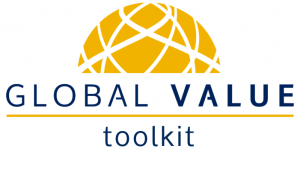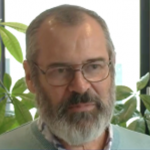Business and the Sustainable Development Goals
In September 2015, the United Nations General Assembly adopted an unprecedented global sustainable development agenda: the Sustainable Development Goals (SDGs). For the first time, business was represented at the negotiation table. And indeed, the scope and ambition of the global goals requires the active participation of all societal actors, including business, if they are to be achieved. As noted by the UN Global Compact, “The SDGs hold the potential to guide companies in their long term investments, strategic prioritization and goal setting. Whereas all SDGs may not be relevant to every company, there is a strong and proven business case for companies to contribute to the realization of each SDG.”
This new global agenda poses a range of questions: What does responsibility for impacts mean for companies? How can managers understand and manage the business contribution to the global goals? What tools do they have at their disposal to demonstrate corporate contributions to achieving the SDGs? This section of the GLOBAL VALUE toolkit is dedicated to providing answers to these questions by breaking down the SDGs for business.
Find below resources and events from the GLOBAL VALUE project, geared at breaking down the SDGs for business.

GLOBAL VALUE monitoring reports
The GLOBAL VALUE monitoring reports were developed over the course of the project to provide insights into the involvement of business in the development and roll-out of the Sustainable Development Goals. They followed the policy process around the global goals between 2014 and 2017 and lay out the most important developments at UN level. They also discuss implications of these developments for business and give an overview of new initiatives involving business into the implementation of the global goals.

Evaluating the Sustainable Development Goals
The Institute for Managing Sustainability at Vienna University of Economics and Business in collaboration with the Austrian Development Agency (ADA) and the European Evaluation Society (EES) organised a symposium on Evaluating the Sustainable Development Goals – New Challenges for Research, Policy and Evaluation on 28th October 2015.
With the adoption of the Sustainable Development Goals (SDGs) by the United Nations in September 2015, a new set of objectives for global sustainable development now guides the global development agenda. Due to the universal acceptance and the integration into national goals, the SDGs provide a comprehensive approach, ensuring a high level of ambition for achieving results, involving development agencies and governments, international organisations, civil society and business.
Coinciding with 2015 as the International Year of Evaluation and the European Year of Development the symposium aimed to be a forum for discussion on the implications of the SDGs for the impact evaluation of policies, programmes and projects across sectors. The symposium addressed the central question of how the SDGs may inform research and practice in evaluation. How can we make sure progress on the SDGs are effectively tracked and evaluated? How do evaluation systems need to adapt to the changed development agenda? How can evaluation contribute to achieving the set goals?
View and download all presentations below. For more information, download the agenda and proceedings of the symposium here.

View presentation:

View presentation:

Business in Development Symposium
The international community calls on business to take on a more proactive role in furthering global development goals, e.g. in terms of financial contributions, accountability, compliance and transparency of operations in developing countries. The debate on measuring impacts of business operations in developing countries has entered the boardrooms of many companies and corporate sustainability reporting has become the norm for many multinational corporations (MNCs). However, the concrete impacts of the global operations of MNCs on society and the environment in developing countries often remain unclear.
Acknowledging the changeing role of business in global sustainable development, the Institute for Managing Sustainability at Vienna University of Economics and Business in collaboration with the Austrian Development Agency (ADA) and the Austrian Institute for Collaboration in Development Cooperation (ICEP) hosted a symposium on Business in Development – new avenues for complementarity and collaboration on 30th June 2014.
For the about 100 registered participants, the symposium offered the opportunity to find out more about the GLOBAL VALUE project and its approach to developing a framework for measuring corporate impacts on development; engage in the dialogue between key actors from development, business, policy, research and civil society; and to discuss impact assessment beyond sustainability reporting as an essential component of fostering a more prominent role of business in development.
View and download all presentations below. For more information, download the agenda and proceedings of the symposium here.

View presentation:
Martin Ledolter, Austrian Development Agency, Business in Development, Opening Panel

View presentation:

View presentation:
André Martinuzzi, Institute for Managing Sustainability, Global Value, Opening Panel
![]()
Impressum
André Martinuzzi, Norma Schönherr, Adele Tharani & Patricia Schindler
© 2017 Institute for Managing Sustainability │ Vienna University of Economics & Business
contact@global-value.eu
www.global-value.eu/toolkit
![]()
Disclaimer
GLOBAL VALUE is co-funded by the European Union Seventh Framework Programme under grant agreement no 613295. Sole responsibility for the project lies with the participating organisations. The European Commission is not responsible for the use that may be made of any material arising from this project.
Use of this site is subject to the Terms & Conditions of Use













